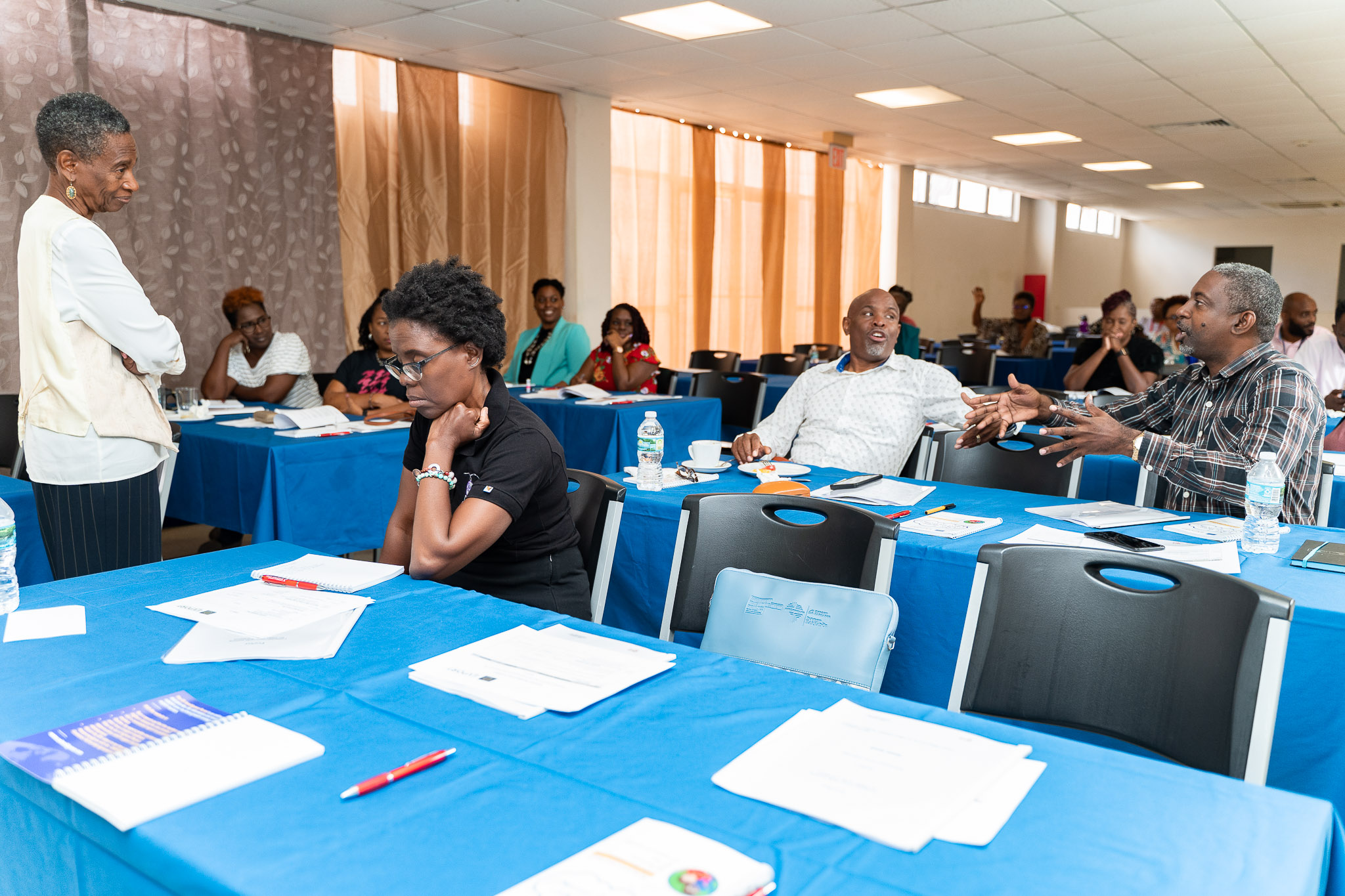Local SMEs get product development advice

Competitiveness in manufacturing came under the microscope when Export Barbados (BIDC) and the Caribbean Export Development Agency (Caribbean Export) co-hosted a free ProNET Workshop from April 20 to 21. The focus of the workshop, the second of its kind targeted at small and medium-sized enterprises (SMEs), was product development.
The two-day workshop, which came on the heels of the ProNET Export Marketing Workshop held in March, was fully subscribed. It sought to help SMEs improve their products and expand their markets.
During the workshop’s opening at Bagnall’s Point Gallery, Pelican Centre, Export Barbados’ Chief Executive Officer, Mark Hill, noted Barbados was lagging behind the rest of the Caribbean in innovation and therefore workshops like this are extremely critical to help turn things around.
“We have a vision of becoming the most innovative island in the whole world, but the gap between our capacity to innovate and our capacity to do product development is very big. So, workshops of this nature are critical to helping us close the gap, particularly for our economy. I want to urge everybody to be open-minded and receptive to the ideas and solutions that you are exposed to. We’re a society that is risk averse, but innovation and product development as a building block is the only sure way to grow our economy and the only sure way to grow your business,” Hill said.
During her remarks, Senior Advisor, Competitiveness and Export Promotion with Caribbean Export, Natasha Walcott, said Caribbean Export is committed to building capacity among SMEs. Referring specifically to Barbados, she revealed that between 2017 and 2022, there were 1,461 participants in Caribbean Export programming.
“Of the in-person activities, there were nine training and certification programmes. Sixty-four companies participated in activities under the export promotion rubric, and that represents trade missions and expos. In our flagship grants programs, we have assisted 35 firms to the tune of US $860,000 in grant assistance,” Walcott said.
ProNET master trainer, Dr. Ramesh Ramdeen, who conducted the workshop, said that regional companies need to master exporting among themselves before looking at making any meaningful impact extra-regionally:
“What we need to do is ensure that the products we produce within the region meet the standards of quality to be able to penetrate the regional markets. We need to understand what our competitive and comparative advantages are. We can’t sell clothes to China. We can’t sell things people are producing better than us or more efficiently than us. So, we need to understand what our niches are. But we need to understand, as well, how to regionally move goods among ourselves. We need to get the CSME [CARICOM Single Market and Economy] working up to scratch.”
Dr. Ramdeen also said there was a captive market in the region with 7 million people between Guyana, Jamaica, and Trinidad and Tobago and 30 to 40 million once the Dominican Republic and Cuba were included. He suggested regional leaders should carefully examine the existing laws and frameworks that curtail trade and agriculture from developing as they should.
ProNET is a training program offered by Caribbean Export for SMEs looking to grow their businesses and make them more competitive and export ready.


